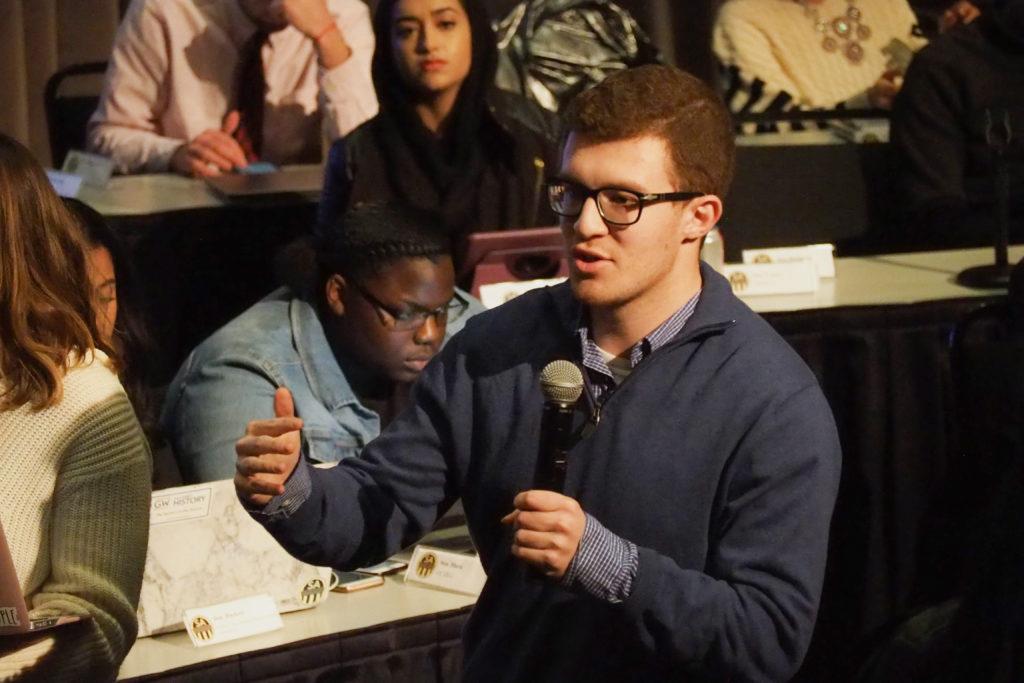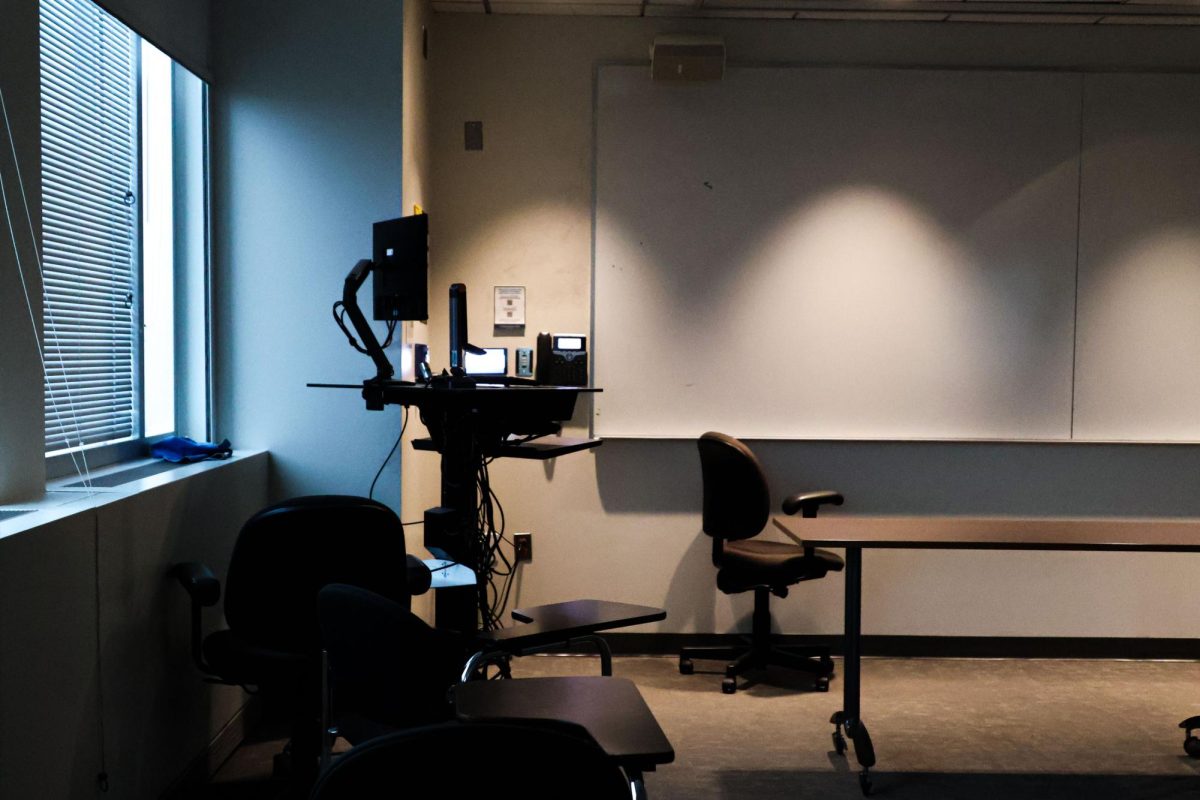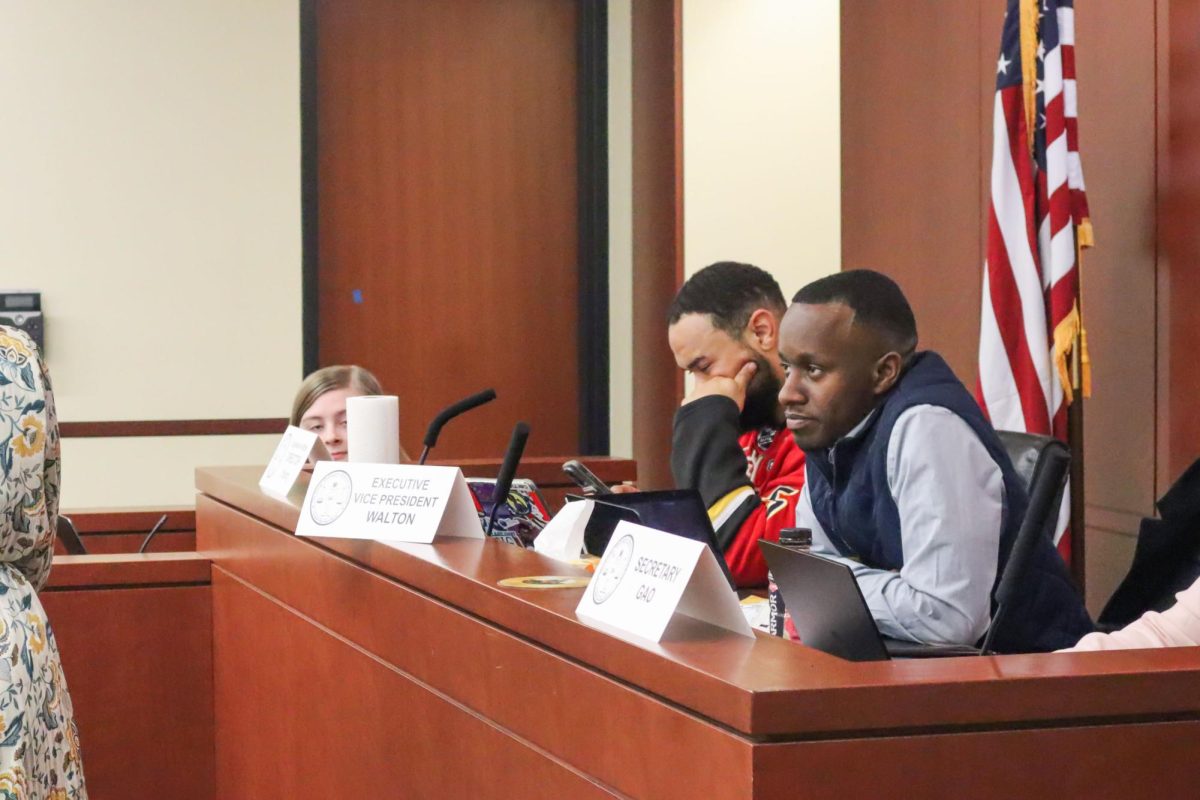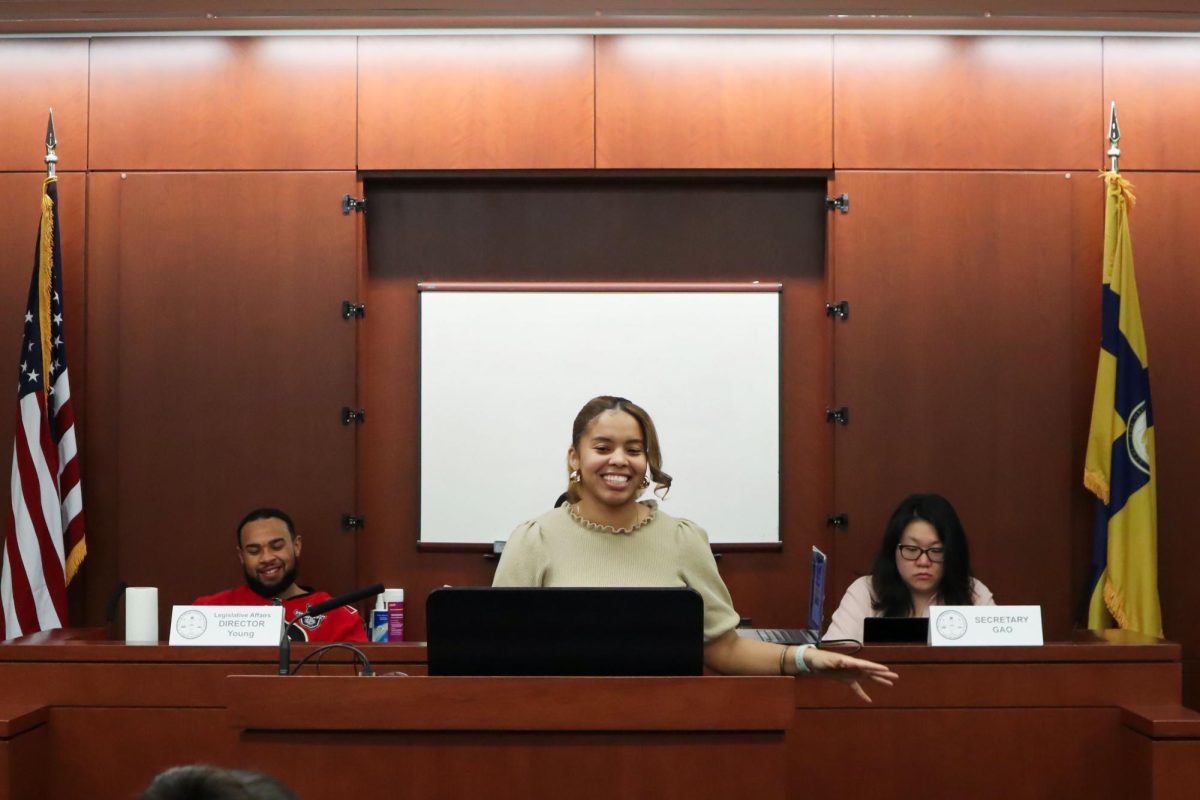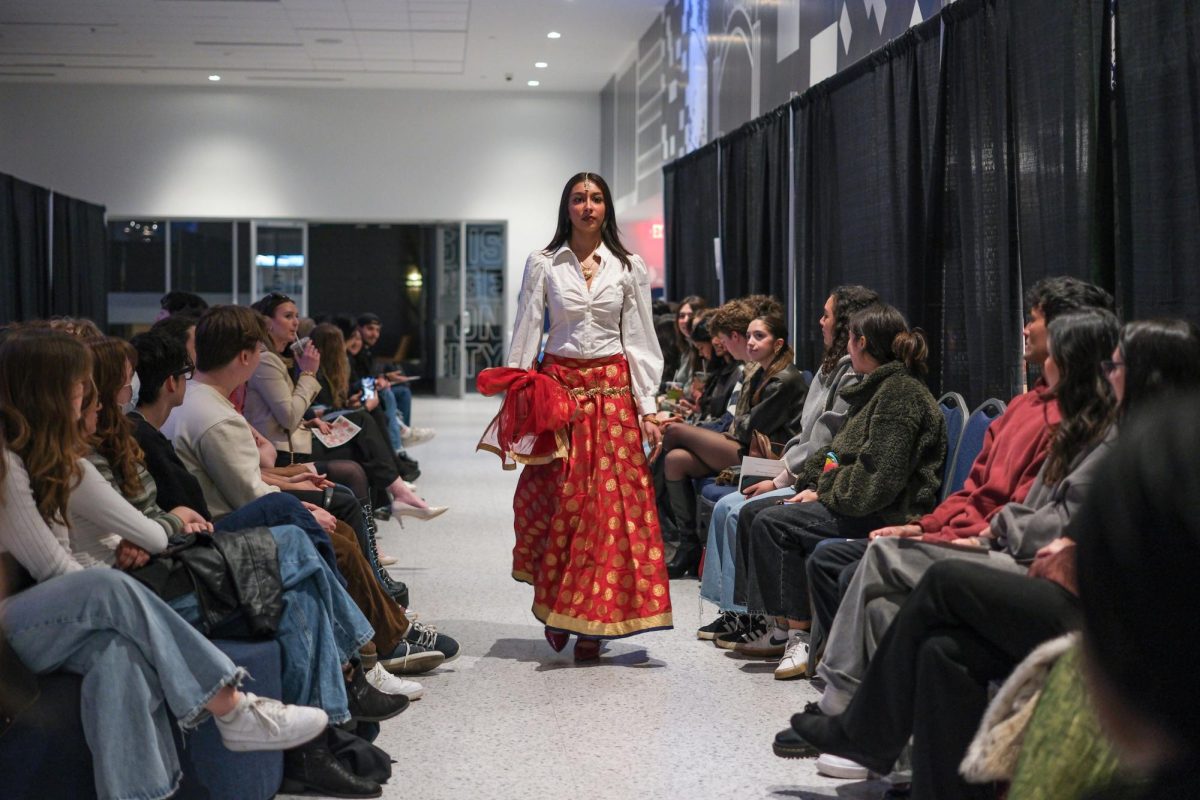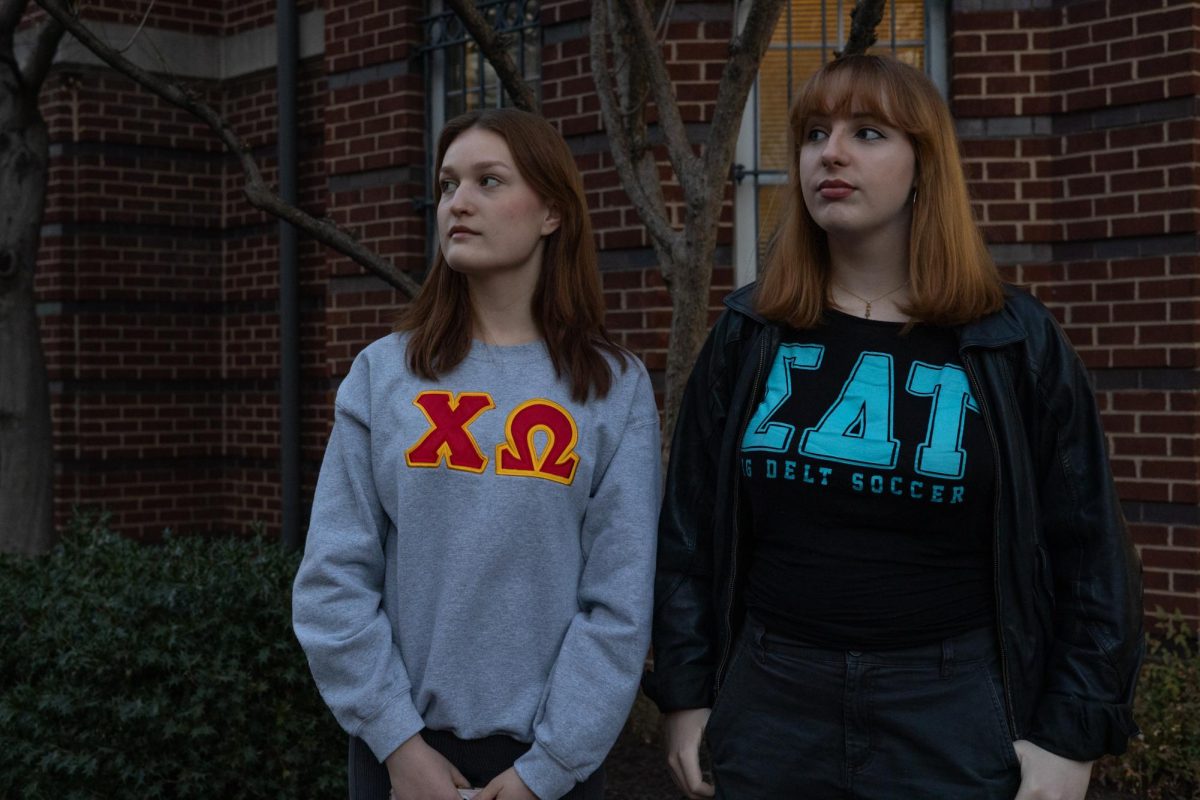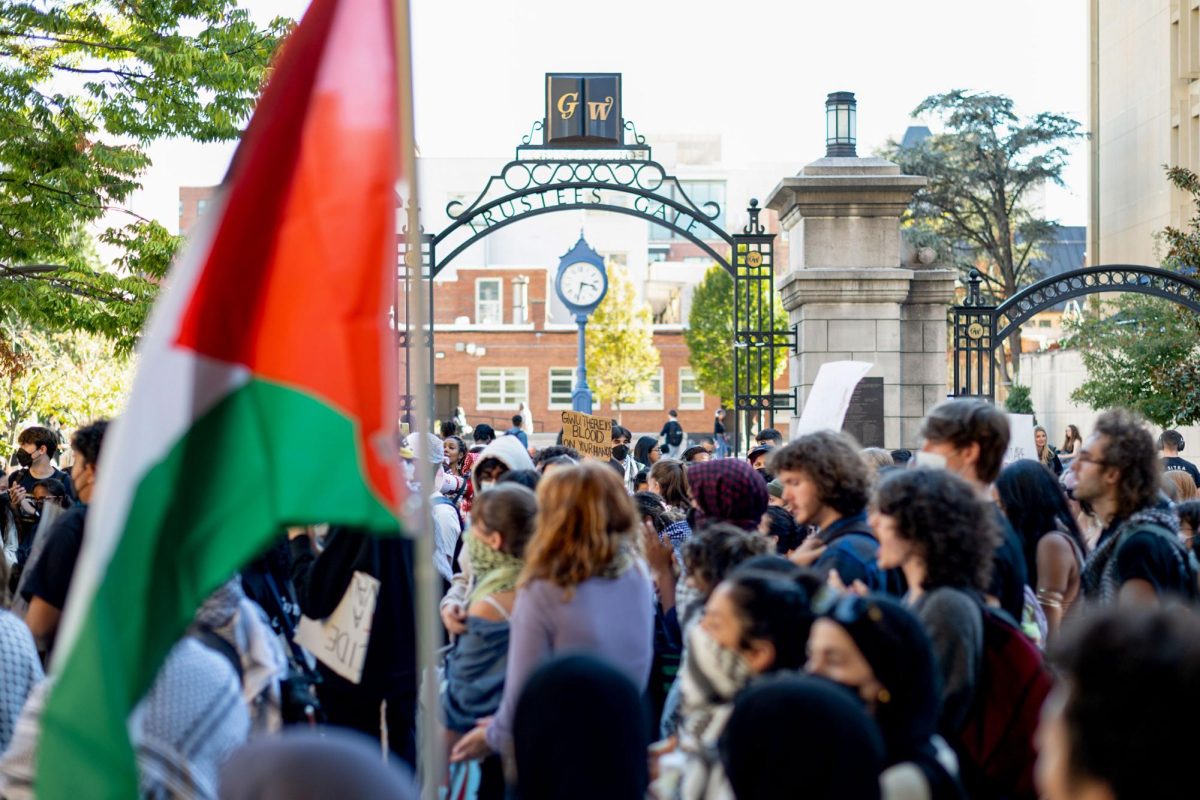Some Jewish student leaders said they weren’t adequately included in conversations about a Student Association resolution last week that urged the University to fight anti-Semitism.
The SA senate overwhelmingly green-lighted a resolution demanding that officials add faith-based discrimination workshops to required first-year diversity trainings and codify an SA task force to address anti-Semitism on campus. SA leaders said they consulted Jewish student leaders before voting on the resolution, but some students said they didn’t have enough time to offer feedback about the legislation and that SA members didn’t fully address their concerns about the resolution’s language.
Louie Kahn, CCAS-U and a sponsor of the legislation, said that in the aftermath of an anti-Semitic video that circulated earlier this month, officials’ investigation into the incident alongside student efforts will help prevent future incidents.
“If GW just addresses some of these things from the onset, you’ll be able to avoid things like what happened in that video,” he said.
Student organizations and the SA held forums in the days following the Snapchat incident to address student concerns that anti-Semitism on campus is not isolated to the recent video.
SA President SJ Matthews filed an executive order Nov. 17 to create a “Task Force on Combating Anti-Semitism,” which will be comprised of SA members, student leaders and student body members who will propose “institutional changes” to address the issue.
Zachary Nosanchuk – the SA’s vice president for undergraduate policy, an endorser of the resolution and a former Hatchet opinions writer – said he is currently working with Matthews and Julia Kerrigan, the SA’s director of interfaith engagement and task force chair, to decide which three student body members will serve in the group.
Nosanchuk said the leaders might create a public application for students to apply to serve on the task force, and the Jewish Student Association will select some representatives for the group.
“We want to have a pluralistic first view of the Jewish community here because we can’t just appoint someone from GW for Israel,” he said. “It’s very difficult because we want to get diversity. We know that in three seats, we’re not going to get every Jew at GW.”
Kahn, CCAS-U and a legislation sponsor, said the task force will “formalize” a group within the SA to address anti-Semitism to ensure the task force will not dissolve over time.
“I do not think it should be a topic that goes ignored,” he said. “Any form of hate needs to be addressed on this campus and I would say anti-Semitism is no exception.”
Kahn said legislation sponsors met with Jewish students, like JVP members and other students earlier this month to discuss the legislation that passed last week. He said an “overwhelming majority” of Jewish students he met with said they would be upset if the legislation did not include that the state of Israel has a right to exist – a clause that was removed before the resolution passed after students pushed back.
“I would just say from a personal perspective, I think that many Jewish students on this campus associate their identity with Israel, and that if we didn’t include that, I think would be a disservice to those students,” he said.
Some Jewish students said they were not given “adequate time” to review the resolution and that the SA did not take their concerns about the proposed language into consideration before the vote.
Gabriela Rossner, a coordinating committee member of Jewish Voice for Peace, said none of the resolution’s sponsors reached out to JVP about the legislation’s content. She said JVP members had to obtain contact information for the sponsors from other SA members.
Rossner said many clauses concerning anti-Semitism were created from JVP members’ suggestions two days before the meeting, but the group did not see a finalized copy of the legislation until the morning of the vote.
“Our voices were heard on issues they agree with,” she said. “It’s the fact that, when they were unable to hear our voices, when we had political differences, even though they’re supposed to be our political representatives, that we truly had issue with.”
Rossner said the clauses labeling Israel a “racist endeavor” and characterizing criticism of Israel as anti-Semitic apply a double standard to the state. She said the group advocated that students should be able to criticize Israel like they would any other country without being labeled anti-Semitic.
She said SA Sen. AJ Link, Law-G who proposed to add JVP’s suggestions to the legislation, pulled her and another JVP member out of the meeting and said the SA senate would agree to include JVP’s amendment proposals if the legislation could include a clause stating that Israel has a right to exist.
She said the move was “inherently undemocratic” because the senators only consulted two JVP members but not other Jewish students or senate members.
“We made the decision that it should be voted on and we’re glad that we asked for democracy to happen,” she said.
Noah Shufutinsky, the vice president of GW for Israel, said senators’ decision to strike the clause containing the State Department’s definition of anti-Semitism, which claims Israel is “inherently a racist endeavor,” is concerning and shows that senators ignored students’ experiences of “bigotry” on campus.
Shufutinsky said Jewish students spoke for hours about the importance of the clause, so removing the statement demonstrates that some senators, who are meant to represent all students, “refused to take a stand for Jewish students.”
“This delegitimization is holding Jewish students to a double standard that categorizes our very existence and right to self determination as a ‘racist endeavor’ which is another way of using the guise of anti Zionism to disenfranchise Jewish students,” Shufutinsky said in an email.
Shufutinsky said the decision reinforces anti-Semitism’s prevalence on campus, which is being ignored or not addressed to its fullest. He said members of GW for Israel will continue to advocate for their community and express that student leaders should take students’ concerns about anti-Semitism and anti-Zionism “seriously.”
“The Jewish community at GW is strong and GW for Israel will continue to be a resource for students to express and celebrate their connection to our homeland, regardless of outside actions,” he said.
Tiffany Garcia, Jared Gans, Shannon Mallard, Ilena Peng and Samantha Serafin contributed reporting.


